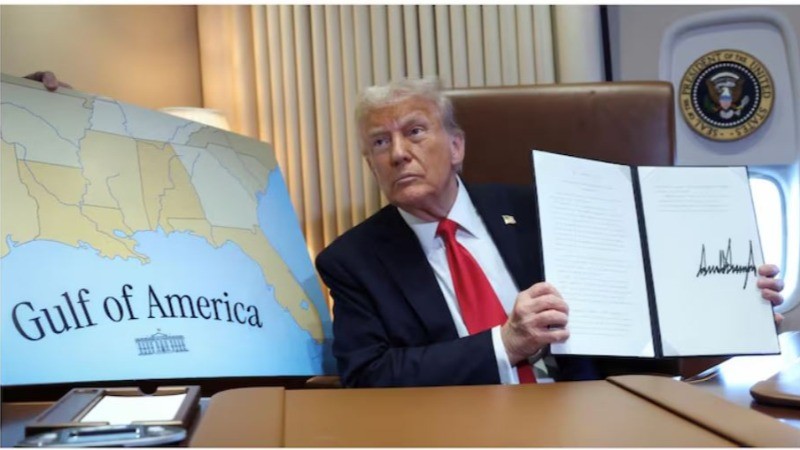
WASHINGTON: U.S. President Donald Trump has signed an Executive Order allowing plastic straws again, saying paper straws are useless. He signed the order on February 10, reversing a policy set by the Ex-Joe Biden administration that aimed to phase out single-use plastics, like straws, cutlery, and packaging, from federal food services by 2035 to reduce plastic pollution.
“These paper straws just don’t work. I have used them many times, and they fall apart, break, or even explode,” Trump said at the White House. “If you put them in something hot, they last only minutes, or sometimes just seconds. It is a ridiculous situation, so we are bringing plastic back.”
Plastic waste is a big problem worldwide. Every year, people produce about 400 million tons of plastic waste. Around 60 percent of it ends up in nature, and only 9 percent is recycled. Plastic is mainly made from fossil fuels and is responsible for 3.4 percent of global greenhouse gas emissions, about the same as the entire aviation industry. In the U.S, the plastic industry releases as much pollution as 116 coal power plants each year.
Single-use plastics like straws, plates, and cutlery are especially harmful because they take a lot of energy, water, and resources to make, yet they are used just once before being thrown away.
Donald Trump also dismissed concerns about plastic harming marine life. “I do not think a shark cares about plastic when it is eating its way through the ocean,” he joked.
However, studies show that plastic pollution is dangerous for sea creatures. The World Wildlife Fund estimates that at least 1,00,000 marine animals die each year from swallowing plastic or getting tangled in it. Another study from December found that almost all U.S. seafood contains microplastics, notably, tiny plastic pieces that come from larger plastic breaking down over time. Scientists found plastic in shrimp, salmon, herring, and many other fish.
Microplastics are also in bottled water, human blood, and even the air we breathe. While the long-term effects are unclear, research suggests they could cause hormone problems and possibly cancer.
A Global Effort to Reduce Plastic
In 2022, the United Nations began working on a global treaty to reduce plastic waste. Countries are still negotiating, but no deal has been reached yet. Talks in Busan, South Korea, recently failed, with some major oil-producing countries like Russia and Saudi Arabia blocking efforts to cut plastic production. There are still major disagreements, and we need more time to find solutions,” said Inger Andersen, head of the UN Environment Programme.